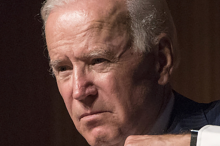You are here
Exchanger Beware › Exchanger Beware
Exchanger Beware
The Tax Plan proposed by Democratic presidential candidate Joe Biden would eliminate 1031 exchanges for investors who have ordinary annual income of $400,000 or more. If one assumes this $400,000 cap includes the gain from the actual sale of real property, in addition to a taxpayer's ordinary income earned, the lion's share of real estate investment property sales would not qualify for 1031 exchange tax treatment. Even if this assumption‑‑that all earned income would not be combined with the 1031 exchange property gain‑‑the bulk of most real estate sales would likely exceed the $400,000 gain amount.
This article is a sad story about a local company that set up its own 1031 intermediary. The company and its related intermediary are both bankrupt and are both accused of bilking investors of millions of dollars.
One of the requirements of a 1031 exchange is that you must use a "qualified intermediary" to handle your exchange, and hold your exchange funds. With all the proceeds of every exchange going to intermediaries, you would think there would be rigorous licensing and regulations for this industry. But there is not -- not by the Federal government, nor by any of the 50 States. Not surprisingly, there have been problems with some intermediaries and their client's money. I have written a number of articles alerting readers to the potential problems caused by this situation, and how to avoid them.
For the third time this year we have a case where an intermediary has stolen the funds from its client's 1031 exchanges. As in the prior instances of exchange theft, the intermediary was able to commit this fraud because the funds were held in a commingled account.
Intermediaries can hold client exchange accounts in one of two ways: in a commingled account, or in a segregated account.
In a commingled account, the combined proceeds of all of their clients' exchanges are held in one single account. For example, if the intermediary has 200 clients, all of their money would be pooled into one account.
The alternative way is to hold the money in separate accounts for each client. So in this instance, continuing my example from above, the intermediary would have 200 separate accounts -- one for each client.
When you do a 1031 exchange, the IRS requires that the proceeds from the sale of your Old Property be held by an intermediary until you buy your New Property. Most intermediaries hold all of their clients' exchange proceeds in one account (called a "commingled account"). Only a very few intermediaries open a separate bank account for each client. However, the dangers of commingled accounts are ominously demonstrated in a few recent situations.
In a recent court case, the intermediary day traded with client funds in the commingled account. Soon, he lost most of the money and filed bankruptcy. The court ruled that because the funds were all pooled in a commingled account, the funds that were held in the account could be used to pay creditors of the intermediary, such as the landlord.
Once again, another 1031 intermediary has stolen exchange proceeds. Several months ago I wrote an article about a Minnesota intermediary who lost his clients' exchange proceeds as a result of day trading losses he incurred in a commingled account for their exchanges (see 1031articles.com). This time a California intermediary took the balance of a commingled exchange account.
Remember, one of the rules of entering into a Section 1031 tax-deferred exchange is that the IRS mandates that you use a Qualified Intermediary (QI). Intermediaries can hold client exchange accounts in one of two ways: in a commingled account where the combined proceeds of all client exchanges are held in one single account. For example, if the intermediary has 200 clients, all of their money would be pooled into one bank account.
Intermediary's Commingled Account Destroys Clients' 1031 Exchanges
A group of 1031 investors recently, and tragically, learned they had to pay for a dishonest QI's indiscretion.
The IRS requires that a 1031 investor use an independent third party called a Qualified Intermediary, or "QI," to hold the investor's money during a 1031 exchange. Most QIs put all of their clients' sales proceeds or exchange funds into one single account – a "commingled" account. Very few intermediaries set up separate, "segregated" accounts for each client because it's more expensive and a time-consuming process – and the QI must have a very good working relationship with its bank and strong internal controls. The failure to take this extra security measure can have dire – even criminal – consequences. Having everyone's exchange money in a commingled account can destroy all the exchanges, as the clients of one QI recently discovered.












It Doesn’t End at 15%
The role of debt in a 1031 exchange
THE FUTURE of The 1031 Exchange Industry